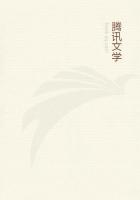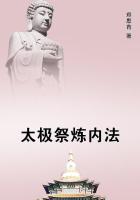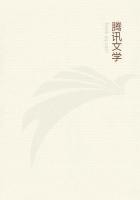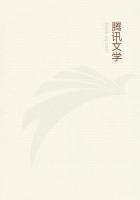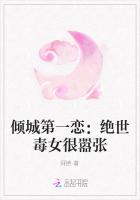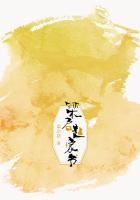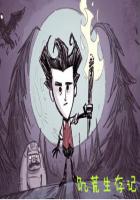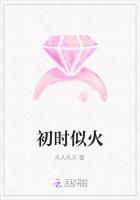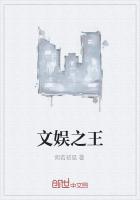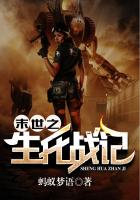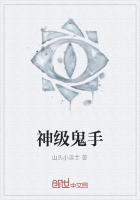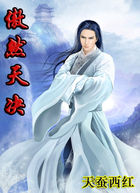To the Chinese child all the parental commands are not simply law to the letter, they are to be anticipated in the spirit. To do what he is told is but the merest fraction of his duty; theoretically his only thought is how to serve his sire. The pious Aeneas escaping from Troy exemplifies his conduct when it comes to a question of domestic precedence,--whose first care, it will be remembered, was for his father, his next for his son, and his last for his wife.
He lost his wife, it may be noted in passing. Filial piety is the greatest of Chinese virtues. Indeed, an undutiful son is a monstrosity, a case of moral deformity. It could now hardly be otherwise. For a father sums up in propria persona a whole pedigree of patriarchs whose superimposed weight of authority is practically divine. This condition of servitude is never outgrown by the individual, as it has never been outgrown by the race.
Our boy now begins to go to school; to a day school, it need hardly be specified, for a boarding school would be entirely out of keeping with the family life. Here, he is given the "Trimetrical Classic" to start on, that he may learn the characters by heart, picking up incidentally what ideas he may. This book is followed by the "Century of Surnames," a catalogue of all the clan names in China, studied like the last for the sake of the characters, although the suggestion of the importance of the family contained in it is probably not lost upon his youthful mind. Next comes the "Thousand Character Classic," a wonderful epic as a feat of skill, for of the thousand characters which it contains not a single one is repeated, an absence of tautology not properly appreciated by the enforced reader. Reminiscences of our own school days vividly depict the consequent disgust, instead of admiration, of the boy. Three more books succeed these first volumes, differing from one another in form, but in substance singularly alike, treating, as they all do, of history and ethics combined. For tales and morals are inseparably associated by pious antiquity. Indeed, the past would seem to have lived with special reference to the edification of the future. Chinamen were abnormally virtuous in those golden days, barring the few unfortunates whom fate needed as warning examples of depravity for succeeding ages. Except for the fact that instruction as to a future life forms no part of the curriculum, a far-eastern education may be said to consist of Sunday-school every day in the week. For no occasion is lost by the erudite authors, even in the most worldly portions of their work, for preaching a slight homily on the subject in hand. The dictum of Dionysius of Halicarnassus that "history is philosophy teaching by example" would seem there to have become modified into "history is filiosophy teaching by example." For in the instructive anecdotes every other form of merit is depicted as second to that of being a dutiful son. To the practice of that supreme virtue all other considerations are sacrificed. The student's aim is thus kept single. At every turn of the leaves, paragons of filial piety shame the youthful reader to the pitch of emulation by the epitaphic records of their deeds.
Portraits of the past, possibly colored, present that estimable trait in so exalted a type that to any less filial a people they would simply deter competition. Yet the boy implicitly believes and no doubt resolves to rival what he reads. A specimen or two will amply suggest the rest. In one tale the hero is held up to the unqualified admiration of posterity for having starved to death his son, in an extreme case of family destitution, for the sake of providing food enough for his aged father. In another he unhesitatingly divorces his wife for having dared to poke fun, in the shape of bodkins, at some wooden effigies of his parents which he had had set up in the house for daily devotional contemplation.
Finally another paragon actually sells himself in perpetuity as a slave that he may thus procure the wherewithal to bury with due honor his anything but worthy progenitor, who had first cheated his neighbors and then squandered his ill-gotten gains in riotous living.
Of these tales, as of certain questionable novels in a slightly different line, the eventual moral is considered quite competent to redeem the general immorality of the plot.
Along such a curriculum the youthful Chinaman is made to run.
A very similar system prevails in Japan, the difference between the two consisting in quantity rather than quality. The books in the two cases are much the same, and the amount read differs surprisingly little when we consider that in the one case it is his own classics the student is reading, in the other the Chinaman's.
If he belong to the middle class, as soon as his schooling is over he is set to learn his father's trade. To undertake to learn any trade but his father's would strike the family as simply preposterous.
Why should he adopt another line of business? And, if he did, what other business should he adopt? Is his father's occupation not already there, a part of the existing order of things; and is he not the son of his father and heir therefore of the paternal skill?
Not that such inherited aptness is recognized scientifically; it is simply taken for granted instinctively. It is but a halfhearted intuition, however, for the possibility of an inheritance from the mother's side is as out of the question as if her severance from her own family had an ex post facto effect. As for his individual predilection in the matter, nature has considerately conformed to custom by giving him none. He becomes a cabinet-maker, for instance, because his ancestors always have been cabinet-makers. He inherits the family business as a necessary part of the family name. He is born to his trade, not naturally selected because of his fitness for it.

